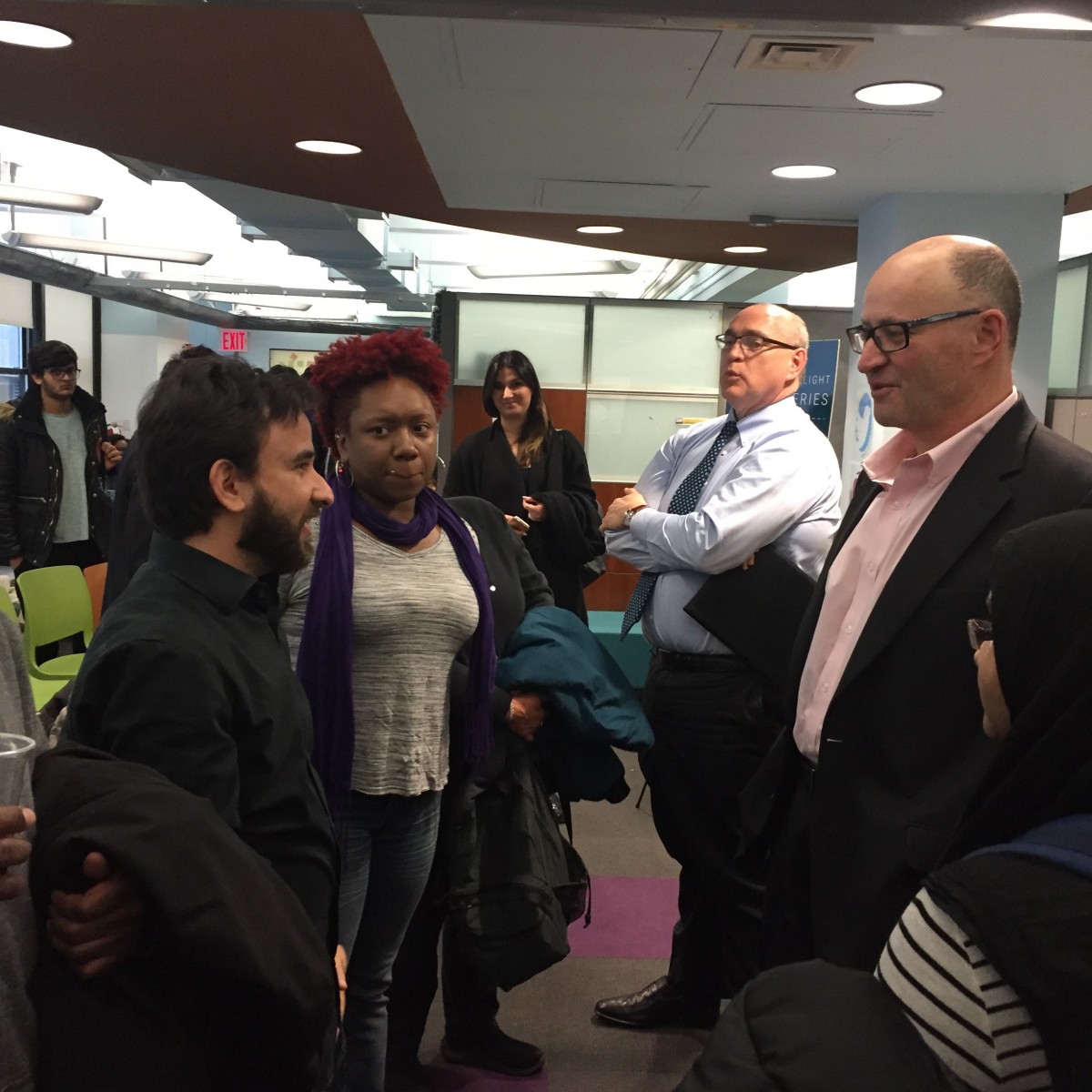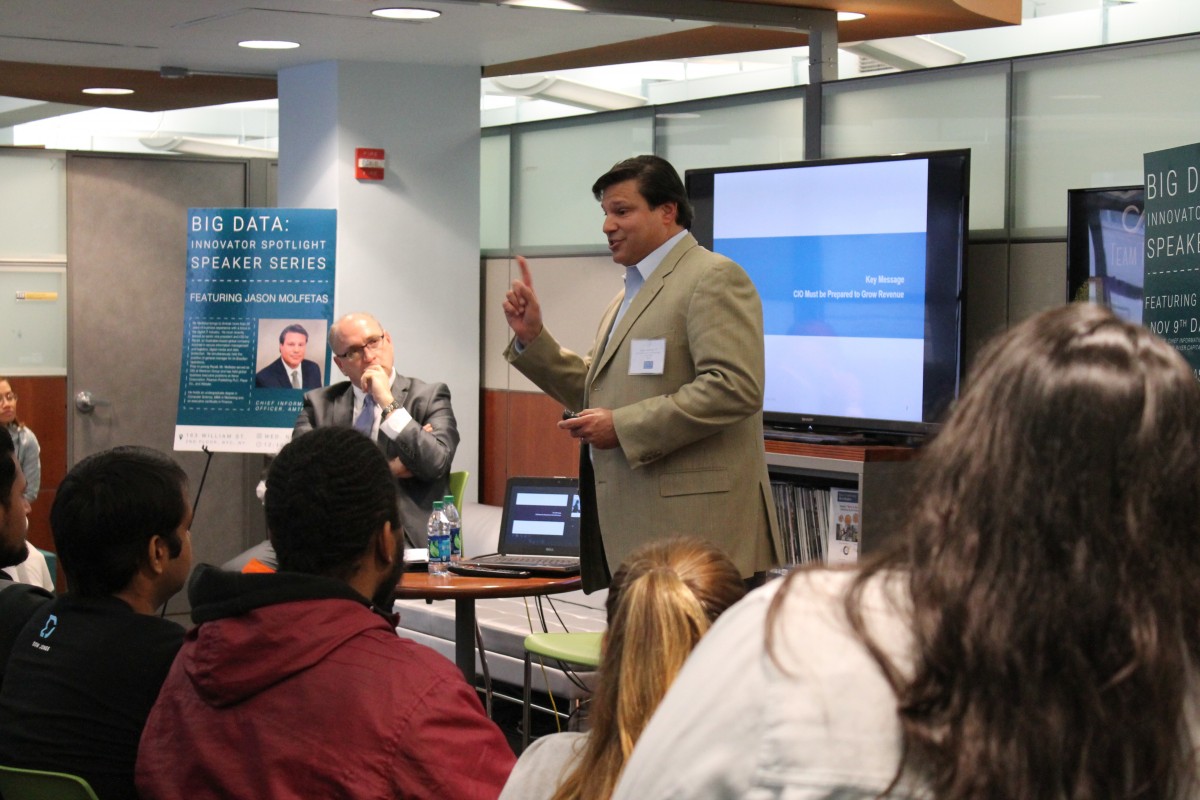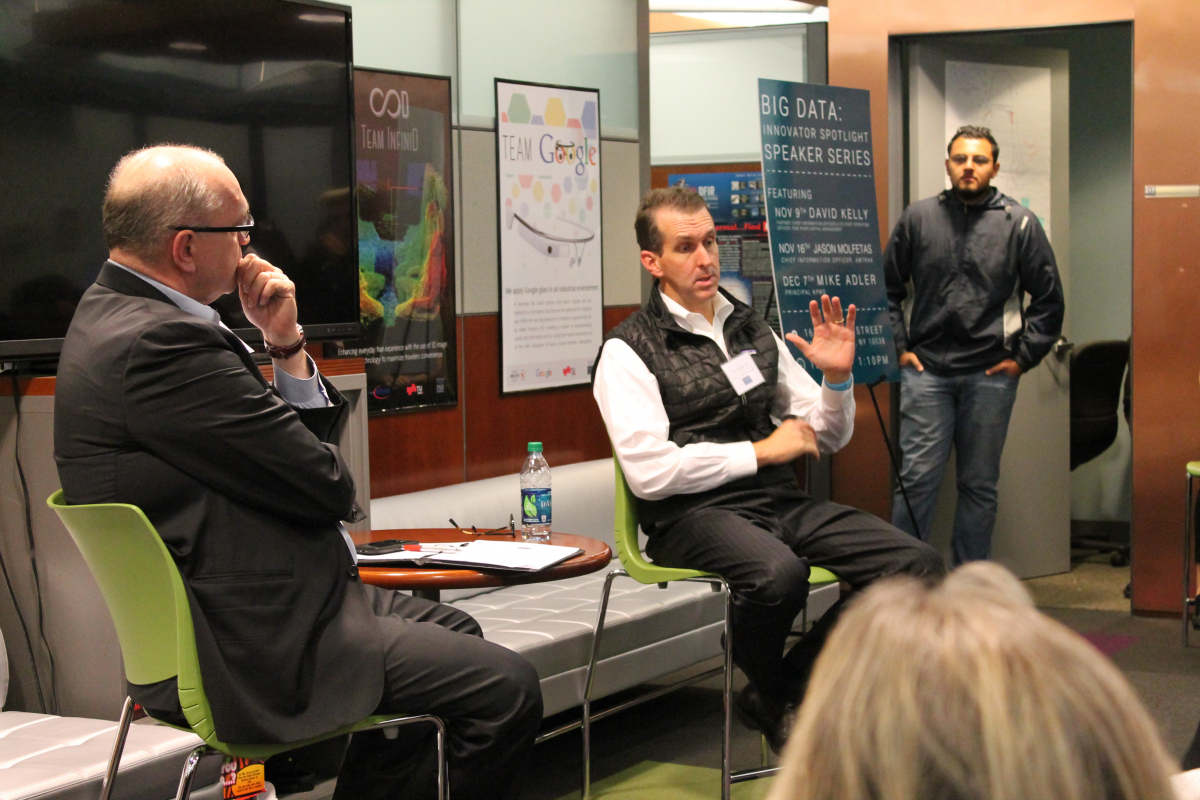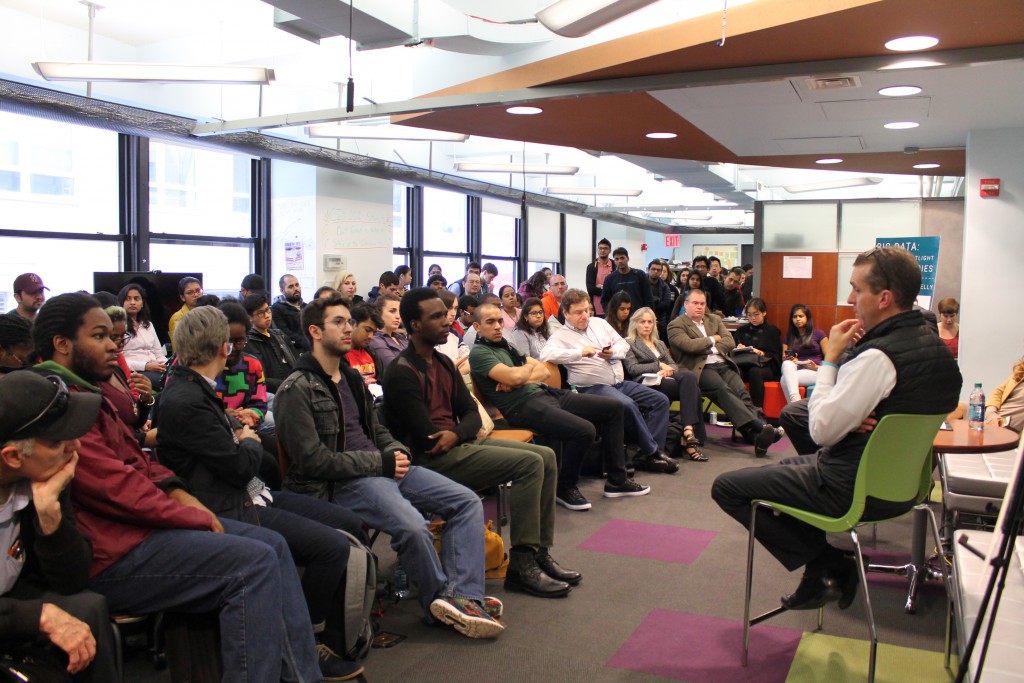The third and final of our Big Data Innovator Series took place on Wednesday, December 7th, 2016, with guest speaker Mike Adler sharing his wisdom and experience with a collection of students, staff, and faculty.
As a Principal in KPMG’s Insurance Management Consulting practice, Mike has significant experience working with leading insurance and financial services companies to drive transformation leveraging digital, data, analytics, technology, and best operational practices.
He started in accounting after graduating from Pace in 1988. It wasn’t long before he began to feel he needed to get into a new area – technology. “Computer science at the time was starting to evolve,” he said.
 He spent many years working at IBM, including working on Watson. He described how the famous artificial intelligence computer works by explaining that you give it enough information that it can begin to make connections and learn by itself. “You bring in all this data and content; you start teaching Watson what’s important. You teach it the relationships between different pieces of information. Watson starts to learn from that. You teach Watson to be a kindergarten student and Watson learns to become an elementary student, a high school student, and a college student.”
He spent many years working at IBM, including working on Watson. He described how the famous artificial intelligence computer works by explaining that you give it enough information that it can begin to make connections and learn by itself. “You bring in all this data and content; you start teaching Watson what’s important. You teach it the relationships between different pieces of information. Watson starts to learn from that. You teach Watson to be a kindergarten student and Watson learns to become an elementary student, a high school student, and a college student.”
While they were on the topic of data, Dean Hill took the opportunity to ask Mike to give his definition of what big data is. “Big data includes things like social media, all forms of unstructured data, video – anything that you can use that relates to content. The challenge is working out how to get through that mass of information, which is growing exponentially every year, and find the nuggets you can use to make decisions.”
The challenge is a great one. It is estimated that the volume of unstructured data doubles each year, making big data enterprise analytics – the ability to sort through, understand, learn from, and recommend paths of action to take based on that data – is becoming an increasingly sought after skill set.
One of the really cool things Mike spoke about was KPMG’s Innovation Lab located in SoHo. “You walk in and you feel like you’re walking into a WeWork. They use the space to do a lot of Design Thinking and facilitation with clients, but also to do research in technologies and the future.”
After opening the New York Design Factory just a few months ago at Seidenberg, we were delighted to hear that design thinking is being practiced in big companies like KPMG!
“I’m very confident that you are getting some great experiences here, particularly around the technologies and architectures and how to apply them,” Mike said about the Pace education. However, it’s just as important to learn soft skills alongside technical ones. “I’ve found out – sometimes the good way, sometimes the hard way – that soft skills are equally as important.”
Mike is a big proponent of what he called “taking appropriate risks.”
“Before, we were taught to find out what the client wants, what the user wants, and deliver it to them. Now, though, it can be better to take appropriate risks – to say ‘I know this is what you want, but how about this?’ Think about a clean slate approach, think about a vision for the future, and be prepared to take risks around that.”
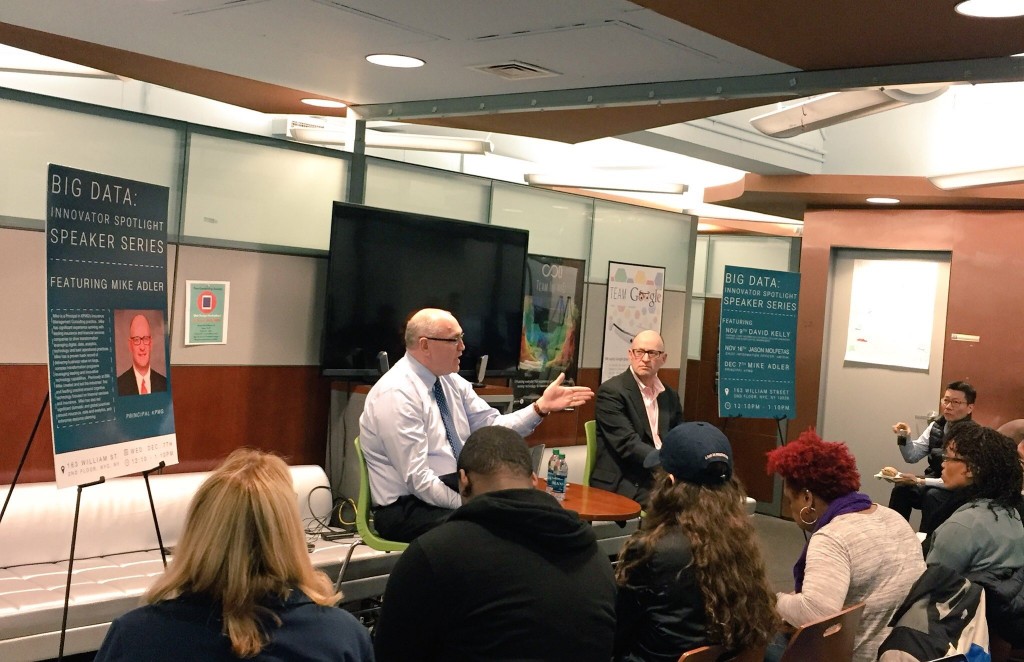 What gives him the most pride about his career? “The risks I took. Going from a corporate environment to a consulting environment. When I joined Watson, I had no idea how it was going to take off or what it was going to do, but I took a risk, told myself it was a once in a lifetime opportunity, and I’m very glad I did. I’m also very proud of the client relationships I’ve built. In my business, it’s all about the clients and your relationship with them. I wake up every day thinking about who my clients are, what I can bring to them that I haven’t, what my team can do, and what new clients I might get. All my career, I’ve been very focused on mentoring people. I want people to succeed (or fail) with the appropriate guidance. I encourage you to put most of your energy around your clients and the people that work with, for, or around you.”
What gives him the most pride about his career? “The risks I took. Going from a corporate environment to a consulting environment. When I joined Watson, I had no idea how it was going to take off or what it was going to do, but I took a risk, told myself it was a once in a lifetime opportunity, and I’m very glad I did. I’m also very proud of the client relationships I’ve built. In my business, it’s all about the clients and your relationship with them. I wake up every day thinking about who my clients are, what I can bring to them that I haven’t, what my team can do, and what new clients I might get. All my career, I’ve been very focused on mentoring people. I want people to succeed (or fail) with the appropriate guidance. I encourage you to put most of your energy around your clients and the people that work with, for, or around you.”
He also discussed how when you join a new company, the people already established there can be wary about new technology, and that soft skills can help overcome that challenge. Knowing how to help people respond to changes or new ideas is incredibly useful in the technology world. For example, helping the general population learn about why Watson is so significant.
“How do we get Watson to relate to the masses?” Mike asked. “Watson now has its own cookbook!” The idea is that by creating something familiar in an unfamiliar way can open the doors between two separate mindsets. “Technology opens people’s minds.”
A huge thank you to Mike for coming to visit us and sharing such excellent wisdom and advice. Thanks also go out to Deth Sao for organizing this fantastic speaker series!
Previous speakers in the series were David Kelly (MS Information Systems ’94) and Jason Molfetas (BS Computer Science ’87).


